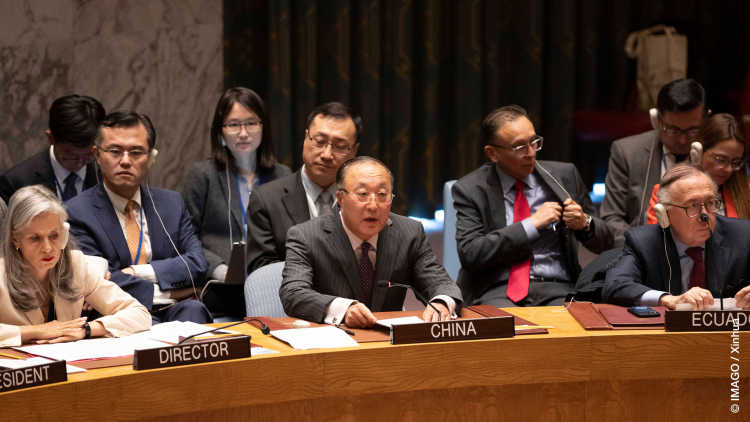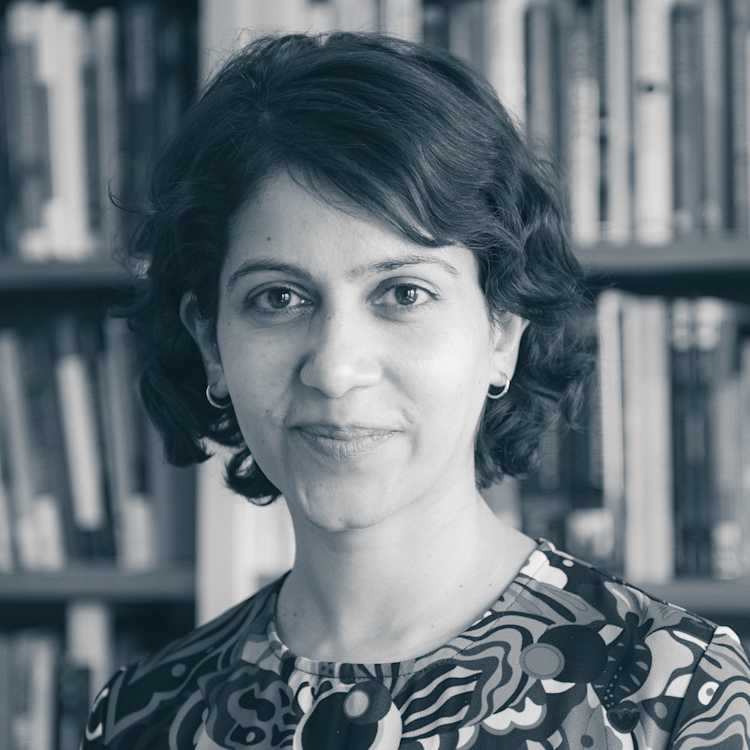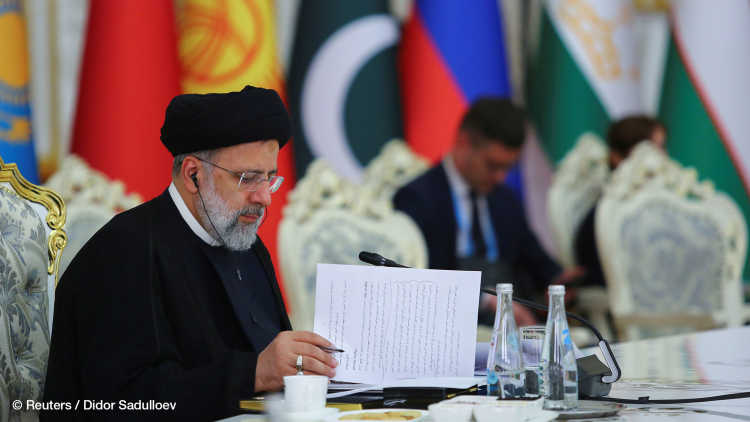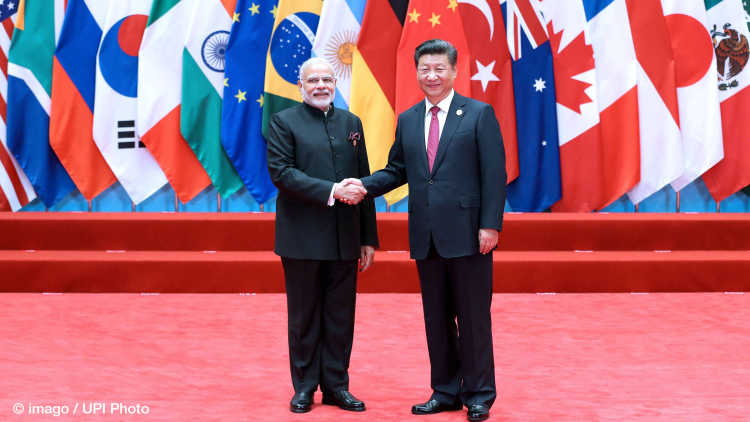- Home
- Publications
- GIGA Focus
- G20: The Global South’s New Status-Seeking Platform?
GIGA Focus Global
G20: The Global South’s New Status-Seeking Platform?
Number 7 | 2022 | ISSN: 1862-3581

Status matters to all states. For some from the Global South, status ambitions drive foreign policies. International venues like the G20 are perfect tools to pursue such ambitions. How, then, does status drive the foreign policies of the Global South and how does it inform their leadership of the G20? How and why should the Global North engage with such status ambitions?
Status is about one’s standing in a social hierarchy and can be understood as a set of shared beliefs about a state. States often communicate their status ambitions through “vanity projects” such as a space programme or become diplomatically very proactive in international forums.
On the one hand, status ambitions can contribute to efforts that strengthen international stability and global governance, such as conflict mediation and humanitarianism. They can also deepen instability in the form of revisionism, regional interventions, and challenges to the rules-based international order.
The year 2023 will see an Indian presidency of the G20. For a country that has long aspired to a seat in global multilateral institutions, India is mobilising the platform – and will continue to do so – to amplify its status ambitions. With India’s rise potentially impacting the global balance of power, a careful reading of its status concerns as manifested in its G20 presidency is both valuable and necessary.
At the current conjuncture of a global polycrisis, it is imperative to create conditions conducive to cooperation between large developing countries and the European Union / Germany. Attention to status concerns implies acknowledgement of hierarchies between states and can create the foundations for establishing relations and partnerships on a level playing field.
Policy Implications
Seeking status is an important driver of foreign policy in the Global South. Intangible and challenging to identify, status considerations sometimes explain puzzling policy outcomes. They draw attention to the role of the reputational gains that lead states to prioritise certain issues over others. For European decision-makers, attention to status concerns when engaging with the Global South can make for better understanding among partners and help strengthen diplomatic interaction.
Status Matters in World Politics
The summit held in Bali in November 2022 kicked off a series of G20 presidencies that will be led by the Global South: first Indonesia, followed by India, Brazil, and South Africa. Given this trend, some have gone so far as to call the G20 a “world government” (Tooze 2022). The supranational body has the potential to bring together powers with different interests despite an increasingly fragmented and complex global multilateralism. As a forum that engages developed and developing countries on international economic governance, the forthcoming presidencies suggest that the countries of the Global South will mobilise the platform to project their power, influence, and status.
For the most part, analyses of rising powers in world politics have predominantly concentrated on the growth of their material capabilities. In turn, what this means for the global political economy, order, and stability is then investigated. The case made here, however, is that their quest for improved status also plays a significant role in informing their emergence and ambitions on the world stage.
Status is about one’s standing in a social hierarchy (Dafoe, Renshon, and Huth 2014). In the realm of world politics, it can be understood as a set of shared beliefs about a state’s standing based on globally valued attributes (Larson, Paul, and Wohlforth 2014: 7). The latter function as status symbols. For instance, the possession of nuclear weapons or aircraft carriers are considered tools of power projection and status markers. On the one hand, status-seeking incentivises patterns of behaviour that contribute positively to international stability and global governance. This includes efforts to broker peace or mediating roles, as seen for example in Turkey’s overseeing of the Russia–Ukraine Grain Deal to ease a potential global food crisis in the autumn of 2022. In contrast, status ambitions and anxieties have contributed to instability in the form of regional interventions and persistent conflicts over disputed territories (Turkey in Cyprus, India/Pakistan in Kashmir).
At the current conjuncture of a global polycrisis, it is imperative to create conditions conducive to cooperation – not only among G20 states, but also between large developing countries and the European Union/Germany. This implies establishing partnerships based on a level playing field. Status matters for world politics, and related ambitions and anxieties can have significant positive and negative effects on global order and stability respectively. Through the cases of Turkey and India, we argue that status-seeking drives foreign policy behaviour in the Global South and policymakers in the Global North would do well to factor in these considerations when engaging with the latter.
Status as a Driver of Foreign Policy in the Global South
There is a common misperception that status considerations tend to predominantly preoccupy great powers in the international system. Indeed, the quest for higher social position, prestige, or respect features on the upper end of Maslow’s hierarchy of needs (Maslow’s Hierarchy of Needs 2022), so it might seem – at least intuitively – that only states with a certain base level of (material) capability yearn for improved status; such aspirations might be a long way off for those merely seeking to survive. And yet, history is rife with examples of states seeking a gain in status despite lacking thematerial means to back it up, for instance in the era of post-1945 decolonisation.
India in the 1940s is a case in point. A country with a poor economy sought an independent and non-aligned voice and position on the world stage. This indicates that status-seeking and material capability do not necessarily correlate and status matters to states irrespective and independently of whether they are great or not. The regional, middle, or even “small” states of the Global South are no exceptions here.
A key implication hereof is that it matters for the makers of foreign policy (in the Global South and elsewhere) how their states are perceived and treated. First, being considered a state of lower status can have significant material implications, such as exclusion from certain political and economic forums shaping the global political economy. Second, it can also have wider implications for a state: perceived lower status can become a reminder of past colonial encounters with Europe/the West for many countries of the Global South. This feeds into anxiety and insecurity. For example, it is hardly a coincidence that the contemporary Indian and Turkish governments often refer to their own proactive and assertive foreign policies as the end of their countries’ subordination by the West. They use this rhetoric not only for domestic political audiences as part of their populist/nationalist discourse. They also employ it for others in the Global South (for example, Turkey’s narrative vis-à-vis sub-Saharan Africa). Status-seeking is, therefore, the pursuit of being treated as equals and with respect by the Global North in this case.
As power continues to shift from its Western core and the global order transitions into a more culturally diverse and multipolar form, the foreign policy aspirations of the Global South are impossible to overlook and will impact how they conduct themselves at the international level. The “Global South” is a vast space indeed, and generally refers to regions outside Europe and North America, ones originally (though not all) low-income and often politically or culturally marginalised in nature (Dados and Connell 2012). In the context of status aspirations, China features in a slightly different category here, with its status-driven behaviour targeted at exposing the limits of the Western-led order. Conversely, the status aspirations of the country cases presented in this analysis are driven more by the idea that they want to have a greater say in how the rules of global order are rewritten rather than being about seeking to refute them per se.
For instance, as one clear illustration hereof, India has unwaveringly pursued membership of the United Nations Security Council rather than sought to delegitimise the institution entirely. Similarly, despite the evident and increasing anti-Westernism in Recep Tayyip Erdoğan’s Turkey, it is different from that espoused by Russia – which is more structural and all-encompassing. “Non-revisionist” status-seeking powers of the Global South thus have certain characteristics in common. A non-exhaustive list is presented below. This may help policymakers identify the exact nature of a status claim when confronted with it, and as such to make more informed assessments about a given country’s core global priorities and goals.
1. International institutions as “high-status” clubs
Multilateral institutions have long been perceived by many Global South states as high-status clubs. In their view, securing membership in these institutions grants them the respect of getting to set the rules of the international order rather than merely being recipients of them. Relatedly, they value membership in these institutions as an important marker of status recognition. In recent years, however, the tangible crisis of multilateralism, alongside its limited ability to cope with global challenges, have also changed the nature of this shared narrative. States have called for a “structural overhaul” of global multilateral institutions to ensure accountability and the wider representation of developing nations. While the G20 shows that Global South representation in these multilateral institutions is indeed increasing, the “status value” states attach to other ones (such as the UNSC in the case of India and the EU for Turkey) means that the demand for membership of such institutions will likely persist or even increase over time.
2. Domestic drivers of status-seeking
The rising tide of populism that has also swept across the Global South has exemplified the role of domestic audiences in status recognition. States have heeded the importance of getting the populace to rally behind and validate their global ambitions, adding another layer of complexity to the status-seeking process. This means that the latter encounters the added pressure of needing to achieve success, as states now rely on this process for their survival not only internationally but also domestically. Securing status recognition globally is framed as a matter of national pride, making the potential losing of face all the more costly. In other words, as status concerns become entangled in populist narratives, conflict resolution is made more challenging as it now involves acute reputational costs. These dynamics are most evident in the case of territorial disputes and border negotiations.
3. Status-seeking through civilisational narratives
A familiar theme emerging in the foreign policy discourse of the Global South is an entitlement to higher status based on the notion of civilisational greatness. Leaders frequently draw on such narratives in their speeches, diplomatic exchanges, and interviews. A prevailing frame of reference here is their respective civilisation’s contributions to progress and modernity predating the colonial encounter. It often includes a retelling of their own history to challenge notions of the West as the centre of modernity and progress.
In doing so, the rising powers of the Global South seek to reassert control over their respective historical narratives and contributions to modern political thought. These narratives are also fuelled by references to Western powers’ limitations, such as NATO’s rapid withdrawal from Afghanistan and, more recently, the struggle to manage and negate the War in Ukraine. Between the lines, they are signalling to the established powers a desire to be treated as equals on the world stage and resisting assumptions that their foreign policy preferences always align with those of the Global North. We see many of these shared characteristics of status-seeking in the cases of Turkey and India. Both countries attribute status value to varying arenas in world politics and demonstrate similarities in terms of narratives and drivers – despite having developed their respective status ambitions and anxieties on the basis of divergent postcolonial experiences.
Status Ambitions of Turkey and India
Turkey as an “Afro-Eurasian state”
Turkey’s standing not only as a rising economic power but also a force in independent diplomacy is best reflected in its current role as a mediator between Russia and Ukraine. It successfully negotiated and subsequently rescued the aforementioned Grain Deal, which is said to be central to ensuring global food security. UN Secretary-General António Guterres went so far as to personally thank President Erdoğan on this count.
This diplomatic activity is based on a long history of Turkey seeking status through a variety of international institutions. The G20 Summit it presided over in Antalya in 2015 occurred against the backdrop of a protracted security crisis in the country, culminating in a failed coup d'état in July 2016. Nevertheless – or maybe precisely because of these domestic problems – Turkey started focusing on projecting its global “brand” as an economic, diplomatic, and humanitarian powerhouse. Through its development agency TIKA, Turkey is now a significant donor country globally – pursuing projects as far afield as Chile, while the mainstay of investment still occurs in its immediate environment (Central Asia, the Middle East, and North Africa). The most prominent among these humanitarian projects is Turkey’s heavily unilateral (albeit UN-coordinated) efforts at state-building in Somalia.
The Horn of Africa and the Persian Gulf are also among the regions where Turkey projects its power militarily, having opened bases in Somalia and Qatar respectively. A broader naval-power projection in the Eastern Mediterranean will soon be complemented by the world’s first drone-carrying naval vessel, the TCG Anadolu. Generally, Turkey has earned itself the reputation of being an exporter of high-tech armoury, and of drones in particular, owing to the development of a native weapons industry in reaction to the post-1974 arms embargo.
This builds on the more deep-rooted narrative, reanimated by the current AKP government in light of the country’s all-but-rejected EU membership bid, of Turkey’s status-seeking as an independent middle power. This was in many ways Turkey’s default position after its war of independence defeated Western powers almost 100 years ago. The early republic’s open and quiet friendships with the Axis powers and the Soviets were soon replaced by a firm alliance with the United States and the West in light of Stalin’s designs on the Turkish straits. Turkey’s (and Greece’s) accession to NATO in 1952 preceded that of West Germany. Turkey, thus, continued to seek status within the Western alliance, having rejected closer relations with other postcolonial powers at the 1955 Bandung Conference.
However, the pre-1952 legacy of a strong and independent Turkey both contributes to and contradicts its current status-seeking ambitions. While it remains a contributor to multilateral missions within NATO and the UN, Turkey pursues various regional military policies (interventions in Iraq, Libya, and Syria; extensive military aid to the warring Azerbaijan in the Caucasus conflict; its continued military occupation of the northern parts of Cyprus and Syria) that are not sanctioned by either the UN or international law (Hoffmann 2019). Beyond the UN and NATO, Turkey also seeks status through various other bilateral and multilateral forms of international cooperation. This includes via its relations with Iran and Russia, especially in the Astana Format, where they coordinate military activity in Syria; Turkey’s active investment in the (now) Organisation of Turkic States as a lead country; and, also, its bid to join the China-led Shanghai Cooperation Organisation as a full member, which led to heavy criticism from the West, including the German chancellor.
In Turkey’s foreign policy behaviour and discourse, we observe that the G20 has become more prominent as a high-status club. In 2015, for example, before the summit chaired by Turkey, Ankara organised a conference between the energy ministers of the G20 states and many African countries as a move to bolster its status ambitions on the latter continent. This G20 event was swiftly followed by the first (and last) “World Humanitarian Summit” in 2016, as motivated not least by Turkey’s central role herein as the largest host country for Syrian refugees. In 2022, Erdogan skilfully utilised the Bali Summit to bolster Turkey’s role as a mediator in the Russia–Ukraine war, particularly to secure the Grain Deal. Turkey’s membership of the G20 is also used as a justification for Ankara’s status ambitions in different parts of the world, as far afield as Antarctica indeed (Bilgic 2021).
Key to Turkey’s status ambitions is their communication to its domestic audience. Historically, foreign policy was not a topic of election campaigns in Turkey. However, the AKP government has frequently used the populist language of a “Rising Turkey,” “Leading Turkey,” “Turkey that receives respect and reverence from the world” at home. Conversely, popular unrest such as the 2013 Gezi Park protests, the current challenging of Turkey’s withdrawal from the Istanbul Convention given its implications for women, and the country’s intensified economic crisis are portrayed as Western attempts to stop said rise. In this way, the AKP government plays into historical status anxieties vis-à-vis the West. Here, status-seeking is used more as a crisis-coping mechanism.
Turkey’s status ambitions, thus, play out in at least three policy fields: First, with regards to its role as a rising economic and especially export power and energy hub. Second, within the framework of being a global humanitarian and diplomatic power, in seeking to help maintain the liberal international order. Third, Turkey projects power geopolitically mostly within the wider post-Ottoman region. By contrast to what is the case with its global role, it frequently does so here outside of established liberal norms, cooperating with powers considered very distant from the liberal consensus – notably Iran and Russia. Especially the country’s close relations with Moscow are shared by India too, though on the basis of vastly different both historical and contemporary grounds.
India as a “leading power”
In this context of rising powers, India is in many ways often seen as an even clearer or “typical” case of status-seeker. Being much larger than Turkey and traditionally non-aligned, India’s desire for a seat in the UNSC is a classic example of it pursuing membership in a high-status club. Be it its “civilisational roots” or sheer “geographic size,” the country’s leaders have constantly articulated or alluded to India’s “greatness” and its entitlement to higher status on the world stage. With India assuming the G20 presidency in 2023, it will capitalise on this opportunity to project its status and rule-shaping abilities regarding global governance. When we look at recent trends, however, it might be tempting to conclude that Indian assertions about their country’s status are only a new phenomenon.
The historical trajectory of India’s foreign policy reveals, in fact, the country’s long-standing quest for higher international status. In the run-up to independence in 1947, the first generation of Indian political leadership placed tremendous importance on the country having its own voice in international affairs (Jagtiani 2021). Even though a weak state at the time, India resisted the systemic pressure to “pick a side” during the Cold War. “Non-alignment,” as this strategy came to be known, was not one of pursuing strategic neutrality but rather about the freedom to make independent choices regarding partners and endeavours in international affairs. Doing so was not just a question of territorial security and survival but also one of status. Over the years, India’s non-aligned position has evolved, being revised and rebranded as “strategic autonomy,” “non-alignment 2.0,” and “multi-alignment” respectively. From the Indian standpoint, retaining the strategic autonomy to guide its own foreign policy is not only a matter of core interests but also specifically one of status – making it harder to shake off.
While India has, per its desire to maintain that strategic autonomy, procured greater military capabilities, a longue durée view of the country’s foreign policy shows that the latter has not led to an attendant increase in status (Basrur and Sullivan de Estrada 2017). Much also depends on how that power is procured, in what context(s), and how other countries perceive these developments. For instance, India would undergo a transformation from a country that rejected material power in the early years of independence to one that eventually embraced it – gradually convincing the world to accept its procurement of material power until eventually coming to be seen as a “rising power” indeed. There was also a shift in perceptions around India becoming a nuclear power: while it was shunned for its nuclear tests in 1974 and then again in 1998, today we see a world that is more comfortable and accepting of India’s status as a nuclear power – as seen, for example, in a related deal with the US in 2008.
Situated in the difficult neighbourhood of South Asia, India continues to battle the effects of its painful birth as an independent nation in the form of long-standing border disputes. Its territorial conflicts with Pakistan on its western frontier and China on its northern and eastern ones have been a source of bilateral and regional tension for several decades now. Having engaged in costly wars with its neighbours, these border disputes have been somewhat kept in check despite repeated flare-ups from time to time. Over the years, and particularly after the deadly encounter between Chinese and Indian forces in the summer of 2022, these disputes have become harder to resolve. Reputational costs or fears of losing face during negotiations have made dialogue less valuable. Additionally, India is not particularly open to external mediation or assistance with regards to resolving these ongoing border issues. It prefers to manage these tensions bilaterally and perceives doing so to be a matter of status and pride. It is for these reasons that India treats external parties’ comments on its contested territories with adversity and contempt, as shown in the case of German Foreign Minister Anna-Lena Baerbock’s suggestion of a potential role for the UN in Jammu and Kashmir on both the occasion of the visit of Pakistani Foreign Minister Bilawal Bhutto to Berlin in October 2022 and earlier of her own visit to Islamabad in June of the same year (The Hindu 2022).
Acts of status-seeking requires recognition, and as such they are targeted at specific audiences. The latter may change as circumstances evolve. In the early post-independence period, for instance, India was just entering the international community of states. It was doing so at a time when the world was entering into the bipolar ideological contest taking shape as the Cold War. Its actions and behaviours vis-à-vis international politics were widely targeted at global audiences – be it its non-aligned policy or its lobbying at the UN, its “global actions” so to speak were very much aimed at other nation-states. The intention here was to show the latter that a formally colonised nation also had the capability to engage in international politics and have a say in matters of war and peace. Over time, however, India began to realise the value of domestic audiences with regards to its status-seeking. In the 1970s, for example, India received significant flak globally but a lot of support domestically after conducting its first nuclear test. Nowadays, meanwhile, we see a lot of muscular talk in Indian diplomacy that is also designed to demonstrate to the electorate at home that the country is indeed asserting itself on the world stage.
As India takes over the G20 presidency, we are set to witness status-seeking in practice as the country mobilises this platform to claim improved status in the international realm. There has been a lot of discussion on and around what India will prioritise here – from climate protection, to energy security, to digital transformation. Agendas aside, India’s handling of the G20 presidency is also about nurturing pride among its citizens at home. From sending text messages en masse to users of certain mobile services to front-page advertising in its national broadsheets, the Indian government has undertaken several means of amplifying its role in leading the G20 in 2023. Policymakers would do well to acknowledge India’s status considerations and include them in their calculations when trying to read and assess the country’s foreign policy or engaging with it diplomatically.
Managing Status Concerns in International Cooperation
Status matters in world politics and the quest for it is not just limited to great powers. Related considerations can explain why foreign policy patterns that may initially appear “irrational” tend to recur. This also emphasises the key role of reputation, as explaining why certain political disputes sometimes persist longer than others and are harder to resolve. From a policymaking perspective, factoring in such status considerations makes for better understanding and empathy between states and can facilitate and strengthen diplomacy. Policymakers would therefore do well to recognise that status matters to big and small powers alike. The upcoming Global South-led G20 presidencies should serve as a reminder that these status ambitions prevail and as such should not be overlooked.
Footnotes
References
Basrur, Rajesh, and Kate Sullivan de Estrada (2017), Rising India: Status and Power, Abingdon: Routledge.
Bilgic, Ali (2021), Turkey’s Antarctic Quest Historical Legacies, Geopolitical Ambitions, in: The RUSI Journal, 166, 6–7, 64–72.
Dados, Nour, and Raewyn Connell (2012), The Global South, in: Contexts, 11, 1, 12–13.
Dafoe, Allan, Jonathan Renshon, and Paul Huth (2014), Reputation and Status as Motives for War, in: Annual Review of Political Science, 17, 371–393.
Hoffmann, Clemens (2019), Neo-Ottomanism, Eurasianism or Securing the Region? A Longer View on Turkey’s Interventionism, in: Conflict, Security & Development, 19, 3, 301–307.
Jagtiani, Sharinee L. (2021), Rethinking Regions and Status in International Relations: The Case of India, Doctoral Thesis in International Relations, University of Oxford.
Larson, Deborah Welch, T. V. Paul, and William C. Wohlforth (2014), Status in World Politics, Cambridge: Cambridge University Press.
Maslow’s Hierarchy of Needs (2022), in: A Dictionary of Public Health, Online Oxford Reference, accessed 12 December 2022.
The Hindu (2022), German Call for U.N. Role in J&K Is Injustice to Terror Victims: India, accessed 12 December 2022.
Tooze, Adam (2022), The G20 Proved It’s Our World Government, in: Foreign Policy, 17 November, accessed 12 December 2022.
General Editor GIGA Focus
Editor GIGA Focus Global
Editorial Department GIGA Focus Global
Regional Institutes
Research Programmes
How to cite this article
Jagtiani, Sharinee, Clemens Hoffmann, Miriam Prys-Hansen, and Ali Bilgic (2022), G20: The Global South’s New Status-Seeking Platform?, GIGA Focus Global, 7, Hamburg: German Institute for Global and Area Studies (GIGA), https://doi.org/10.57671/gfgl-22072
Imprint
The GIGA Focus is an Open Access publication and can be read on the Internet and downloaded free of charge at www.giga-hamburg.de/en/publications/giga-focus. According to the conditions of the Creative-Commons license Attribution-No Derivative Works 3.0, this publication may be freely duplicated, circulated, and made accessible to the public. The particular conditions include the correct indication of the initial publication as GIGA Focus and no changes in or abbreviation of texts.
The German Institute for Global and Area Studies (GIGA) – Leibniz-Institut für Globale und Regionale Studien in Hamburg publishes the Focus series on Africa, Asia, Latin America, the Middle East and global issues. The GIGA Focus is edited and published by the GIGA. The views and opinions expressed are solely those of the authors and do not necessarily reflect those of the institute. Authors alone are responsible for the content of their articles. GIGA and the authors cannot be held liable for any errors and omissions, or for any consequences arising from the use of the information provided.






























